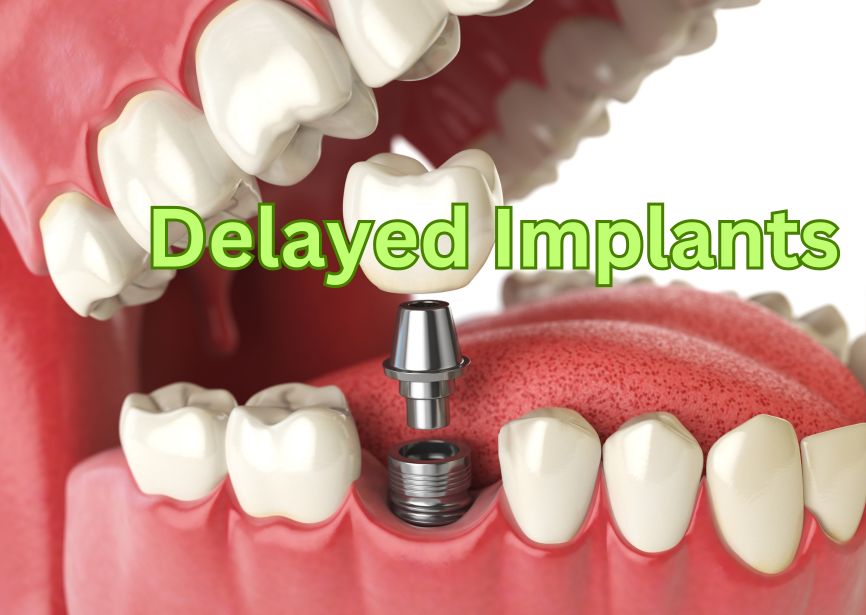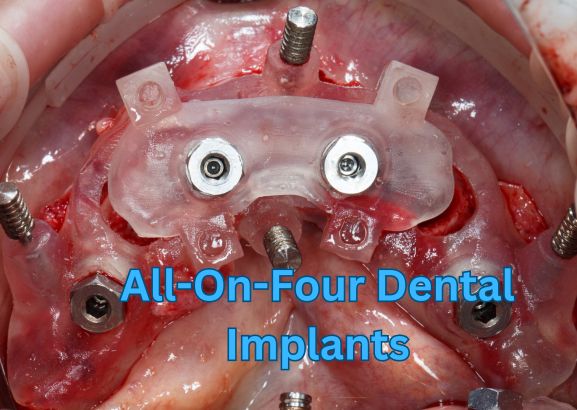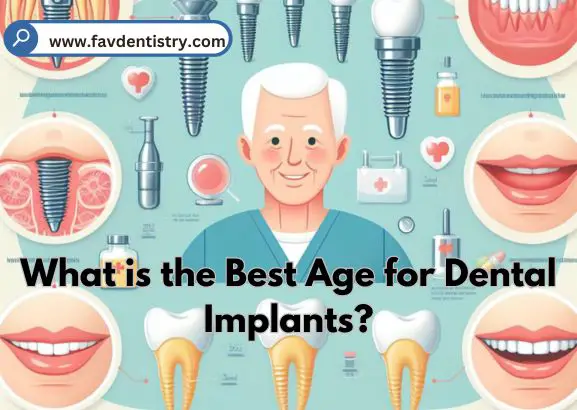When is It Too Late to Get Dental Implants: Expert Insights
Last Updated on 3 months by DR. ALBIN SIPES
It is never too late to get dental implants if you are in good health. Age is not a limiting factor.
Dental implants provide a permanent solution for missing teeth. They offer improved aesthetics, function, and oral health. Anyone with healthy gums and sufficient jawbone can be a candidate, regardless of age. Implants can replace one tooth or multiple teeth, enhancing your smile and quality of life.
Proper dental hygiene and regular check-ups are essential for successful implants. Consulting with a dental professional will help determine your suitability for the procedure. Modern advancements have made implants more accessible and effective than ever. So, even if you are older, dental implants can be a viable option to restore your smile and oral function.
Age Considerations
When is it too late to get dental implants? Age considerations play a crucial role in determining the success and longevity of dental implants. While dental implants can be a fantastic solution for missing teeth, age can influence various factors, such as healing, bone density, and overall oral health. It’s essential to understand how different age groups may respond to this procedure.
Optimal Age Range
The optimal age range for dental implants typically falls between the late teens and mid-sixties. During these years, the jawbone is usually fully developed and healthy enough to support the implants. Several factors make this age range ideal:
- Bone Density: Younger individuals tend to have higher bone density, which is crucial for implant stability.
- Healing Capacity: The body heals more efficiently, reducing the risk of complications.
- Fewer Underlying Health Issues: Younger adults generally have fewer chronic conditions that could affect implant success.
Table: Benefits of Dental Implants in Optimal Age Range
| Factor | Benefit |
|---|---|
| Bone Density | Higher bone density ensures better implant integration. |
| Healing Capacity | Faster healing reduces the risk of infection and complications. |
| Fewer Health Issues | Lower risk of medical conditions affecting oral health. |
Risks For Older Adults
Older adults face unique challenges with dental implants due to factors like decreased bone density and slower healing. These risks can impact the success of the procedure:
- Bone Resorption: With age, bones may lose density, making it harder for implants to anchor securely.
- Medical Conditions: Conditions like diabetes or osteoporosis can affect healing and implant integration.
- Medication Interference: Some medications can hinder bone growth or affect gum health.
Table: Risks for Older Adults with Dental Implants
| Risk Factor | Impact |
|---|---|
| Bone Resorption | Implants may not integrate well with the jawbone. |
| Medical Conditions | Diabetes or osteoporosis can slow healing and cause complications. |
| Medication Interference | Some drugs can affect bone growth and gum health. |
Genetic Factors
Genetic factors also play a significant role in the success of dental implants. Some individuals may have genetic predispositions that affect bone density or the healing process:
- Bone Density Genes: Certain genes can influence bone density, affecting implant stability.
- Healing Genes: Genetic variations can impact the body’s ability to heal after surgery.
- Gum Health Genes: Some people are genetically predisposed to gum diseases, affecting implant success.
| Genetic Factor | Impact |
|---|---|
| Bone Density Genes | Influence how well the implant integrates with the jawbone. |
| Healing Genes | Impact the speed and efficiency of the healing process. |
| Gum Health Genes | Affect the likelihood of gum diseases, impacting implant success. |
Understanding these age considerations can help you determine the best time for dental implants and ensure a successful outcome. Whether you are young or older, consulting with a dental professional is crucial to evaluate your suitability for the procedure.
Health Factors
When considering dental implants, many wonder if it can ever be too late to get them. Several health factors play a crucial role in determining your eligibility. Understanding these factors helps you make an informed decision about your dental health.
Chronic Conditions
Chronic conditions like diabetes, heart disease, and osteoporosis can impact your ability to get dental implants. These conditions may affect healing and increase the risk of infection. Here are some chronic conditions to consider:
- Diabetes: High blood sugar levels can slow down the healing process.
- Heart Disease: Blood thinning medications can complicate surgical procedures.
- Osteoporosis: Weak bones may not support implants well.
Not all chronic conditions automatically disqualify you from getting implants. Your dentist will assess your overall health to determine the best course of action.
| Condition | Impact | Considerations |
|---|---|---|
| Diabetes | Slower healing | Manage blood sugar levels |
| Heart Disease | Increased bleeding risk | Monitor medication |
| Osteoporosis | Weak bone structure | Bone density tests |
Medications Impact
Medications you take can also affect your eligibility for dental implants. Certain drugs can interfere with bone healing or cause complications.
- Blood Thinners: These medications can lead to excessive bleeding during surgery.
- Bisphosphonates: Used to treat osteoporosis, they can impact bone healing.
- Immunosuppressants: These drugs can increase the risk of infection.
Discuss your medication history with your dentist to evaluate potential risks. They may adjust your treatment plan to accommodate these factors.
Long-term Missing Teeth
Having missing teeth for an extended period can lead to complications that affect your ability to get implants. Over time, the jawbone can deteriorate, making it difficult to place implants.
Bone Loss: Missing teeth can cause the jawbone to weaken and lose density. This condition, known as bone resorption, can make implant placement challenging.
Periodontal Disease: Long-term missing teeth can lead to gum disease. Periodontal disease can further weaken the bone and gums, complicating implant surgery.
Regular dental check-ups and proper oral hygiene are essential to prevent these issues. Bone grafting procedures can sometimes restore the jawbone, making implants possible.
Bone Density
Dental implants offer a permanent solution for missing teeth. Yet, many wonder, “When is it too late to get dental implants?” One crucial factor is bone density. Adequate bone density in the jaw is essential for successful implantation. Without it, the implant may not anchor properly, leading to potential failure.
Importance Of Bone Health
Bone health is crucial for dental implants. The jawbone must be strong enough to support the implant. If the bone density is low, the implant may not integrate well.
Adequate bone density ensures that the implant remains stable. Low bone density can result from:
- Aging
- Osteoporosis
- Tooth loss
Loss of teeth can lead to bone resorption. The jawbone starts to shrink without the stimulation of chewing.
Maintaining bone health includes:
- Regular dental check-ups
- Healthy diet
- Calcium and Vitamin D intake
Bone health impacts the success rate of dental implants. Ensure you discuss bone density with your dentist.
Bone Grafting Options
Bone grafting can help when bone density is low. It involves adding bone material to the jaw to strengthen it for implants.
There are several bone grafting options:
- Autografts: Bone taken from your body
- Allografts: Donor bone from another person
- Xenografts: Bone from an animal, usually a cow
- Alloplasts: Synthetic bone material
Bone grafting provides a strong foundation for implants. It ensures the implants have enough bone to integrate with.
A table comparing bone grafting options:
| Type | Source | Pros | Cons |
|---|---|---|---|
| Autografts | Your body | High success rate | Requires a second surgery |
| Allografts | Donor | Readily available | Risk of rejection |
| Xenografts | Animal | Abundant supply | Possible allergic reactions |
| Alloplasts | Synthetic | No disease transmission | Varied success rates |
Bone grafting can make implants possible even with low bone density.
Advanced Gum Disease
Advanced gum disease, or periodontitis, affects the bone structure. It can lead to significant bone loss, making implants difficult.
Signs of advanced gum disease include:
- Bleeding gums
- Receding gums
- Loose teeth
Advanced gum disease can erode the jawbone. This reduces the available bone for implants.
Treatment for advanced gum disease involves:
- Deep cleaning (scaling and root planing)
- Antibiotics
- Surgery in severe cases
Managing gum disease is vital before considering implants. Ensure your gums are healthy to support the new teeth.
Bruxism (teeth Grinding)
Bruxism, or teeth grinding, can affect bone health. It places excessive pressure on the jawbone and teeth.
Signs of bruxism include:
- Worn-down teeth
- Jaw pain
- Headaches
Bruxism can lead to bone loss around the teeth. This reduces the bone available for implants.
Treatment options for bruxism include:
- Wearing a mouthguard at night
- Stress management techniques
- Medications to relax the jaw muscles
Managing bruxism is crucial before getting implants. It ensures the bone remains strong enough to support the implants.
Timing After Tooth Loss
When is it too late to get dental implants? This is a common question. Timing after tooth loss is crucial. The right time for implants varies. Let’s explore the options.
Immediate Implants

Immediate implants are placed right after tooth extraction. This option is great for preserving bone structure. It also reduces the number of surgeries needed.
Here are some benefits of immediate implants:
- Less bone loss: The implant stimulates the bone, preventing bone loss.
- Faster results: You get your new tooth quicker.
- Fewer surgeries: One surgery instead of two or more.
Not everyone is a candidate for immediate implants. Good candidates include:
- People with healthy gums.
- Non-smokers.
- Those without chronic illnesses.
Immediate implants are ideal for front teeth. They provide quick aesthetic results. Consult your dentist to see if you qualify.
Delayed Implants

Delayed implants happen months after extraction. This allows the bone to heal first. It’s a common approach for back teeth.
Benefits of delayed implants include:
- Better bone integration: The bone has time to heal and integrate.
- Lower risk of infection: Healing reduces infection risk.
- More predictable results: The dentist can plan better.
Delayed implants are suitable for:
- People with infections at the extraction site.
- Those with insufficient bone density.
- People who need bone grafts.
A table comparing immediate and delayed implants:
| Criteria | Immediate Implants | Delayed Implants |
|---|---|---|
| Timing | Right after extraction | Months after extraction |
| Bone Loss | Less bone loss | More bone loss |
| Number of Surgeries | Fewer surgeries | More surgeries |
Delayed implants are often more successful. They allow for better planning. Discuss with your dentist to find the best option.
Lifestyle Choices
When is it too late to get dental implants? Lifestyle choices play a key role in determining this. Your daily habits can impact your oral health significantly. Knowing these effects can help you make informed decisions. Let’s explore some of these lifestyle choices.
Smoking Effects

Smoking is a major factor that can affect dental implant success. Smokers face a higher risk of implant failure. Here are some reasons why:
- Reduced blood flow: Smoking narrows blood vessels, reducing blood flow to the gums.
- Delayed healing: Nicotine impairs healing, making it harder for the implant to integrate with the bone.
- Increased infection risk: Smokers are more prone to infections around the implant site.
Studies show that smokers have a higher rate of implant failure than non-smokers. Quitting smoking before getting implants can improve your chances of success. If you smoke, discuss it with your dentist. They can guide you on the best steps to take.
Diet And Oral Health
Your diet has a big impact on oral health and dental implants. A balanced diet can help ensure the success of your implants. Here are some key points:
- Calcium and Vitamin D: These nutrients are essential for strong bones and teeth. Dairy products, leafy greens, and fortified foods are good sources.
- Limit sugar: High sugar intake can lead to cavities and gum disease. Both conditions can affect implant success.
- Hydration: Drinking plenty of water helps keep your mouth clean and reduces the risk of infection.
| Foods to Include | Foods to Avoid |
|---|---|
| Leafy greens, dairy, fish | Sugary drinks, candies, processed foods |
A healthy diet helps maintain good oral health, which is crucial for dental implants. Make sure to eat balanced meals and avoid foods that can harm your teeth.
Dental Consultation
Dental implants can restore your smile and improve your oral health. But many wonder, “When is it too late to get dental implants?” The answer often begins with a dental consultation. A consultation helps assess your suitability for implants and addresses any concerns you may have. Knowing what to expect and the right questions to ask can make this process smoother and more informative.
What To Expect
During a dental consultation, the dentist evaluates your oral health to determine if you are a good candidate for dental implants. This initial assessment includes several key steps:
- Medical History Review: The dentist will review your medical history, including any chronic conditions, medications, or past surgeries.
- Oral Examination: A thorough examination of your mouth, gums, and teeth helps identify any potential issues.
- Imaging Tests: X-rays or 3D scans provide detailed images of your jawbone and oral structures.
- Bone Density Assessment: The dentist checks the density and volume of your jawbone, crucial for implant support.
Here’s a table outlining the steps and their importance:
| Step | Importance |
|---|---|
| Medical History Review | Identifies potential health risks |
| Oral Examination | Detects oral health issues |
| Imaging Tests | Provides detailed jawbone images |
| Bone Density Assessment | Ensures adequate bone for implant support |
These steps help the dentist develop a personalized treatment plan. This plan outlines the procedure, timelines, and any preparatory treatments you may need.
Questions To Ask
Asking the right questions during your consultation ensures you fully understand the process and set realistic expectations. Consider these important questions:
- Am I a good candidate for dental implants? Understand if your oral and overall health supports the procedure.
- What preparatory treatments might I need? This includes bone grafts or gum treatments that could be necessary.
- What is the estimated timeline for the procedure? Knowing the duration helps you plan accordingly.
- What are the risks and benefits? Weigh the pros and cons to make an informed decision.
- What will be the cost? Ensure you understand the financial commitment, including insurance coverage.
These questions help clarify the process and set clear expectations. Here’s a quick reference table for these questions:
| Question | Purpose |
|---|---|
| Am I a good candidate? | Assess candidacy |
| What preparatory treatments are needed? | Identify additional treatments |
| What is the estimated timeline? | Plan your schedule |
| What are the risks and benefits? | Understand procedure implications |
| What will be the cost? | Plan your budget |
Having these questions answered helps you feel more confident and prepared for the journey ahead. This comprehensive approach ensures you make the best decision for your dental health.
Alternative Solutions
Dental implants are a popular solution for missing teeth, but sometimes they aren’t an option. Age, health issues, or bone loss can make implants unsuitable. Thankfully, there are alternative solutions to consider when dental implants are not feasible.
Bridges And Dentures
When dental implants aren’t an option, bridges and dentures offer a reliable alternative. These solutions can restore your smile and improve your ability to chew and speak.
Bridges are fixed prosthetic devices that fill gaps where teeth are missing. They are anchored to neighboring teeth or dental crowns. Bridges can be made of porcelain, gold, alloys, or a combination of materials. They are durable and can last many years with proper care.
Dentures are removable appliances that replace missing teeth. There are two types of dentures:
- Complete Dentures: Used when all teeth are missing.
- Partial Dentures: Used when some natural teeth remain. They help keep remaining teeth from shifting.
Both bridges and dentures have their advantages:
| Solution | Advantages |
|---|---|
| Bridges | Fixed in place, look natural, and restore function. |
| Dentures | Removable, cost-effective, and easy to clean. |
Temporary Options
If permanent solutions are not immediately possible, temporary options can help. These options provide relief and functionality until a more lasting solution is available.
Temporary dentures are a common choice. They are made quickly and can be adjusted as needed. These dentures help you eat and speak normally while you wait for a permanent fix.
Another temporary solution is the flipper. A flipper is a removable partial denture made of acrylic. It’s lightweight and easy to use. Flippers are a great way to fill gaps in your smile temporarily.
Essix retainers are clear, plastic retainers that fit over your teeth. They are often used to maintain the position of your teeth after orthodontic treatment. Essix retainers can also hold a false tooth in place, making them a versatile temporary solution.
Temporary options offer several benefits:
- Provide immediate functionality.
- Maintain the appearance of your smile.
- Allow time for healing or further dental work.
All-on-four Dental Implants
For those who cannot get individual implants, All-on-Four dental implants might be an ideal solution. This method uses four strategically placed implants to support a full arch of teeth.
All-on-Four implants offer several benefits:
- Stability: The implants provide a stable base for the prosthetic teeth.
- Reduced surgery: Only four implants are needed, reducing the amount of surgery required.
- Immediate results: Teeth can often be attached to the implants on the same day.
The procedure involves placing two implants vertically in the front of the jaw and two at an angle in the back. This maximizes the use of available bone and provides strong support for the prosthetic teeth. Patients can leave the dental office with a full set of functional and natural-looking teeth.
All-on-Four implants are particularly beneficial for those who have experienced bone loss. Because the angled implants at the back can engage more bone, there is often no need for bone grafting.
If you’re considering alternatives to dental implants, discussing these options with your dentist can help determine the best solution for your needs and lifestyle.
Success Rates
Dental implants offer a reliable solution for missing teeth. But when is it too late to get dental implants? Understanding the success rates of these implants can help you make an informed decision. Success rates are influenced by various factors, and long-term outcomes vary from person to person. Let’s dive deeper into what makes dental implants successful and what you can expect in the long run.
Factors Influencing Success
Several elements affect the success of dental implants. Here are some key factors:
- Bone Density: Good bone density is essential for implant stability. Low bone density may require bone grafting.
- Oral Hygiene: Maintaining excellent oral hygiene prevents infections and ensures implant longevity.
- Overall Health: Conditions like diabetes or smoking can reduce the success rate. Healthy individuals have better outcomes.
- Age: While age itself isn’t a limit, older adults may face challenges like bone loss. Proper evaluation is crucial.
These factors directly impact the success rate of dental implants. According to studies, the average success rate is around 95%. This high success rate is achievable with proper care and monitoring.
Below is a table summarizing how different factors influence success rates:
| Factor | Impact on Success Rate |
|---|---|
| Bone Density | High density increases success rate |
| Oral Hygiene | Good hygiene prevents infections |
| Overall Health | Healthy individuals have better outcomes |
| Age | Proper evaluation needed for older adults |
Long-term Outcomes
Long-term outcomes of dental implants are generally positive. With proper care, implants can last a lifetime. Here are some points to consider:
- Durability: Dental implants are designed to be durable. They can last over 20 years with proper care.
- Functionality: Implants function like natural teeth. They improve chewing and speaking abilities.
- Aesthetics: Implants look like real teeth. They enhance your smile and boost confidence.
- Bone Health: Implants help maintain bone structure. They prevent bone loss that occurs with missing teeth.
Regular check-ups and good oral hygiene are essential for maintaining the longevity of dental implants. Studies show that the long-term success rate remains high, around 90-95%, even after 10 years.
Here is a summary of long-term outcomes:
| Outcome | Long-term Benefit |
|---|---|
| Durability | Lasts over 20 years |
| Functionality | Improves chewing and speaking |
| Aesthetics | Enhances smile |
| Bone Health | Prevents bone loss |
Frequently Asked Questions
Is There An Age Limit For Dental Implants?
No, there’s no strict age limit for dental implants. The key factor is having sufficient bone density. Elderly patients can also be good candidates.
Can Older Adults Get Dental Implants?
Yes, older adults can get dental implants. Age isn’t a primary factor; oral health and bone density are more important.
What Are The Risks For Late Dental Implants?
The risks include insufficient bone density, prolonged healing time, and potential complications from existing medical conditions. Consult your dentist for personalized advice.
Are Dental Implants Effective For Seniors?
Yes, dental implants are effective for seniors. They can significantly improve quality of life by restoring function and aesthetics.
Conclusion
Age should not deter you from considering dental implants. Advances in technology make implants a viable option for many. Consult your dentist to evaluate your specific situation. Remember, it’s never too late to improve your oral health and regain a confident smile.
Act now to explore your options.


